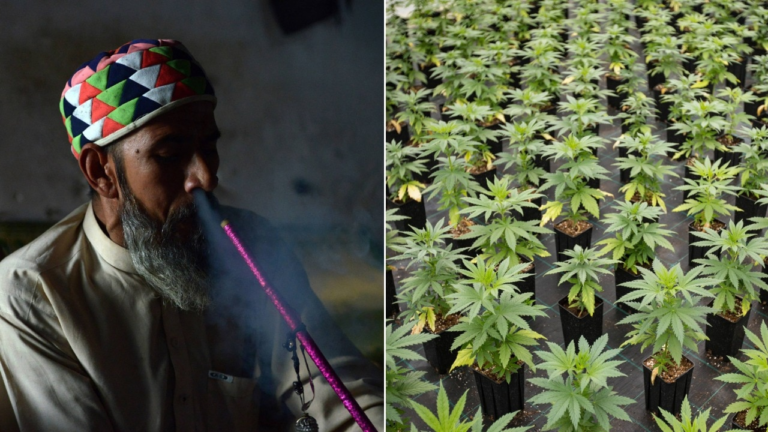The Pakistani government has followed the royal path. It wasn’t what I expected. It legalizes the use of cannabis for medical purposes, paving the way for exports of cannabis and its products at a time of economic hardship.
In February, the Pakistani government passed an ordinance leading to the creation of the Cannabis Control and Regulation Authority (CCRA). CCRA is responsible for “regulating the cultivation, extraction, purification, manufacture, and sale of cannabis derivatives for medical and industrial purposes.”
Nikkei Asia reported that Pakistan wants to take advantage of its favorable growth conditions to enter the global cannabis market. Syed Hussain Abidi, chairman of Pakistan Council for Scientific and Industrial Research (PCSIR), told Al Jazeera that the Islamic Republic could use cannabis to generate revenue through exports, foreign investment and domestic sales, and strengthen its foreign exchange reserves. he said.
Pakistan’s economy may actually get a much-needed boost from cannabis.
According to the Asian Development Bank, Pakistan’s inflation rate has risen to 25% and economic growth is the fourth slowest at 1.9%.
The economic crisis after May 2022 will be This is the worst situation since the creation of Pakistan.
The Cannabis Regulatory Authority is comprised of 13 members, including officials from multiple government departments, intelligence agencies, and the private sector. The establishment of such a body was first proposed in 2020 when Imran Khan was prime minister. This shows that the country is poised to become part of the global cannabis and cannabis derivatives business.
“We are very serious about this initiative and things are moving at a very fast pace,” a Special Investment Facilitation Council official told Nikkei Asia.
According to Statista, the global cannabis market is expected to reach $64.73 billion this year.
Cannabis or hemp is not just a psychoactive substance, it is also used for medical purposes. Cannabis is also prescribed for anxiety, depression, and chronic pain.
Pakistani medical expert Adnan Amin said, “There is a possibility of misuse of cannabis, but ephedrine (used to treat low blood pressure) is a life-saving drug and it is also misused.” told.
“Thanks to the THC oil, my daughter’s seizures have decreased from 100 seizures a day to several days without seizures,” Amin said. “Due to strict U.S. regulations, we were unable to source the prescribed orphan drugs from U.S. hospitals.”
PCSIR’s Saeed Hussein Abidi discussed with Al Jazeera how regulators are required by UN law. He also set a limit on the amount of tetrahydrocannabinol (THC) used at 0.3%.
“United Nations law states that if a country wants to produce, process and sell cannabis-related products, it must have a federal agency to deal with the supply chain and ensure international compliance,” he said. added.
Those who abuse the regulations or purchase cannabis for recreational purposes face stiff fines, ranging from Rs 1 million to Rs 10 million for individuals and Rs 10 million for corporations, according to The Express Tribune. A fine of 200 million rupees will be imposed.
This regulation is a welcome intervention as it will curb illegal cultivation in the Khyber Pakhtunkhwa region. Currently, the government can earn revenue from medical cannabis, and even more from fines from people who continue to use it over the counter.
The license is also granted for 5 years. Only the government can make the final decision on where cannabis can be legally grown.
“When Cannabis was cultivated in Afghanistan in the past, we often lost money because we could not recover our investment in growing the plants. [the] The Taliban issued a ban, but our business has improved considerably,” the farmer told Al Jazeera.
Such regulations would help farmers and governments and would be a welcome step. However, it remains to be seen whether Pakistan will be able to produce cannabis derivatives of superior quality or whether the international market will maintain its dominance and regulation will be of little help.

